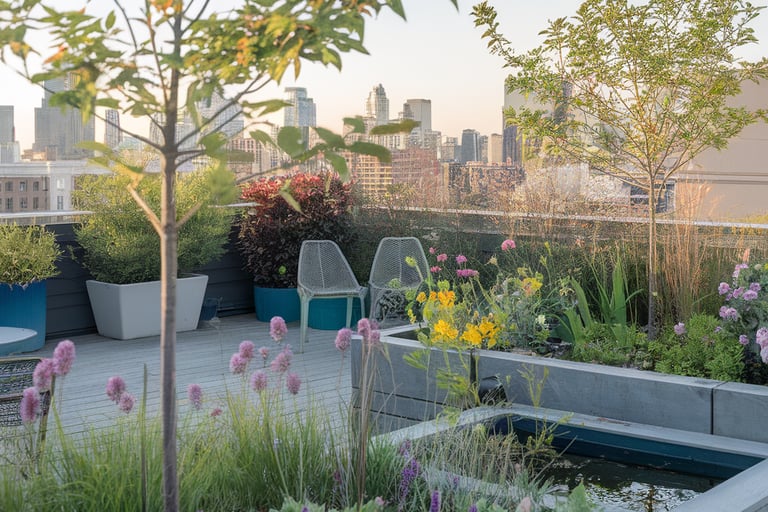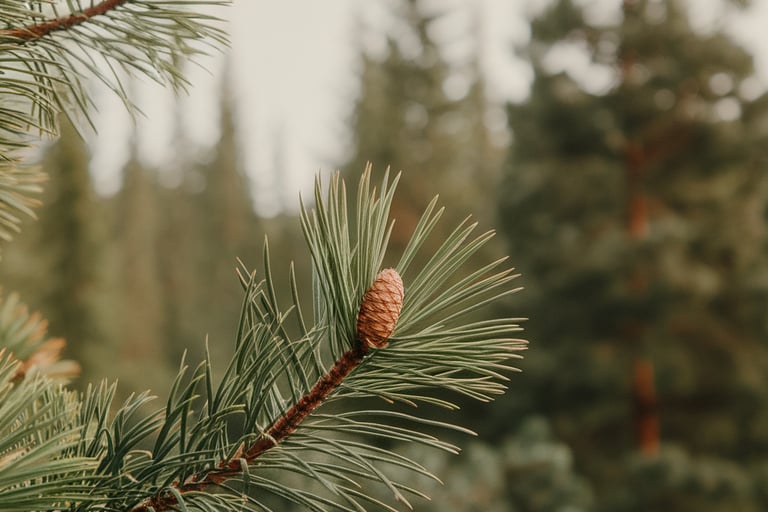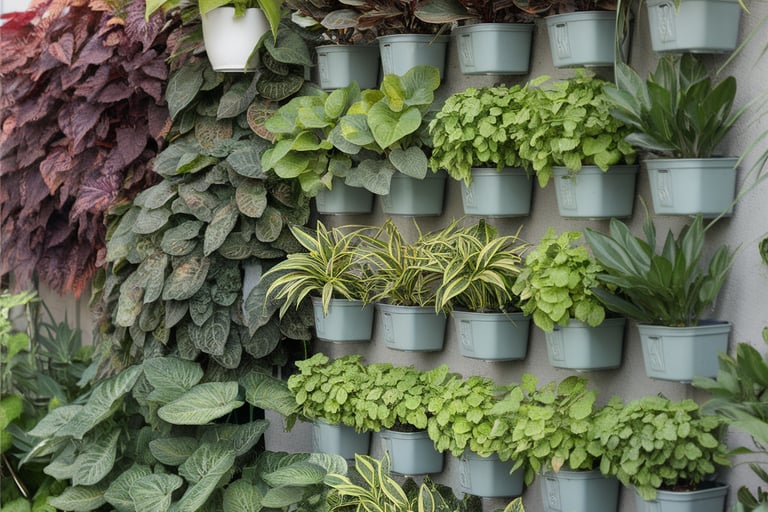
Vancouver Condo Guidelines for Balcony Tree Pruning: A Complete Guide for Strata Residents
Learn essential Vancouver-specific guidelines for pruning balcony trees in condos. Expert tips on strata compliance, seasonal timing, and maintaining urban greenery safely.
3/26/20256 min read
As a professional landscaper with over 15 years of experience maintaining Vancouver's urban gardens, I've witnessed the growing trend of balcony gardens in our city's numerous high-rises. From Coal Harbour to Yaletown, more condo residents are embracing container trees and plants, creating their own slice of nature in the sky. However, maintaining trees on balconies comes with unique challenges and responsibilities, especially in Vancouver's distinct climate and regulatory environment.
Understanding Vancouver's Balcony Gardening Regulations
Before diving into pruning techniques, it's crucial to understand the local regulations governing balcony gardens. The City of Vancouver has specific guidelines for balcony plantings, which can be found in detail on the City of Vancouver's Urban Agriculture Guidelines. Additionally, most strata corporations have their own rules regarding balcony landscaping, which typically align with the Strata Property Act of BC.
Vancouver's Unique Climate Considerations
Our coastal climate presents both opportunities and challenges for balcony tree maintenance. With an average of 169 rainy days per year according to Environment Canada, Vancouver's moisture levels support robust growth but also create specific pruning requirements. The combination of our mild winters and wet conditions means that fungal diseases are a particular concern, making proper pruning techniques essential for tree health.
Seasonal Timing for Balcony Tree Pruning
In Vancouver, the ideal pruning schedule differs from other Canadian cities due to our unique climate patterns:
Winter Pruning (December-February)
Despite our relatively mild winters, this is the best time for major structural pruning of deciduous trees. With less rainfall than our notorious November downpours, winter pruning reduces the risk of fungal infections. However, avoid pruning during freezing spells, which are most common in January according to historical weather data from Vancouver Weather Stats.
Spring Maintenance (March-May)
As cherry blossoms paint the city pink and new growth emerges, light pruning can help shape your trees. This is particularly important for popular balcony species like Japanese maples and dwarf fruit trees. However, avoid heavy pruning during the spring growth flush, as this can stress the tree and attract pests common to the Lower Mainland.
Common Balcony Trees in Vancouver
The most successful balcony trees in Vancouver typically include:
Japanese Maples (Acer palmatum)
These adaptable trees thrive in our climate and are perfect for container growing. Their size can be maintained through proper pruning techniques, making them ideal for balcony gardens from False Creek to the North Shore.
Dwarf Conifers
Species like Hinoki Cypress and dwarf Mountain Pine are well-suited to Vancouver's weather patterns and can be maintained at appropriate sizes for balcony constraints.
Container Fruit Trees
Despite our urban setting, dwarf apple and cherry trees can flourish on Vancouver balconies with proper care and pruning. Local nurseries like GardenWorks offer varieties specifically selected for our coastal climate.
Essential Safety Considerations for High-Rise Pruning
Working on Vancouver's high-rise balconies requires extra precautions. As someone who's maintained gardens from the West End's tallest towers to Burnaby's MetroTown area, I can't stress safety enough. Always secure your tools properly – the wind patterns around our tall buildings can be unpredictable, especially in exposed areas like Coal Harbour and False Creek.
Professional Tools and Equipment
When pruning balcony trees in Vancouver's condos, using the right tools is crucial:
Hand Pruners
For Vancouver's typically compact balcony trees, invest in high-quality bypass pruners. The humid coastal air can cause tools to rust quickly, so consider stainless steel options available at local suppliers like Lee Valley Tools in Vancouver.
Pruning Saws
For larger branches, a folding pruning saw is essential. Remember that most Vancouver strata bylaws restrict power tools on balconies, making manual tools your primary option.
Collection Systems
Given our city's strict waste management regulations, having proper collection systems for green waste is crucial. The City of Vancouver's Green Bin Program has specific guidelines for disposing of pruning waste.
Proper Pruning Techniques for Balcony Trees
Crown Reduction
In Vancouver's often space-limited balconies, crown reduction is crucial. This technique helps maintain views of our beautiful mountains and harbor while keeping trees healthy. Always cut back to a lateral branch that's at least one-third the diameter of the removed limb.
Thinning
Our humid climate means adequate air circulation is essential to prevent fungal issues common in coastal BC. Proper thinning helps reduce disease pressure while maintaining the tree's natural form. This is particularly important for deciduous trees like Japanese maples, which are prone to powdery mildew in Vancouver's damp conditions.
Managing Growth Around Building Features
Vancouver's glass-heavy architecture requires special attention when pruning. Keep branches at least 30 cm away from building surfaces to prevent damage and allow for window cleaning access. This is particularly important in newer buildings in areas like Olympic Village and River District, where large glass panels are common.
Seasonal Considerations for Vancouver's Climate
Fall Preparation (September-November)
Before our rainy season intensifies, focus on removing dead or weak branches that might not survive winter storms. The Vancouver Park Board follows similar timing for their urban tree maintenance, and it's a good guide for private gardeners.
Summer Maintenance (June-August)
During our dry season, light pruning can help manage growth while minimizing stress on the tree. Water management becomes crucial during these months, as container trees are more vulnerable to drought stress, even in our coastal climate.
Strata Compliance and Documentation
Working with Your Strata Council
Most Vancouver stratas require written approval for significant pruning work. Document your maintenance plans and include photos when submitting requests. The Condominium Home Owners Association of BC offers excellent resources for understanding your rights and responsibilities.
Height and Width Restrictions
Many Vancouver stratas have specific size limitations for balcony plants. Typically, trees should not exceed the height of the balcony railing by more than 1-1.5 meters, though this varies by building. Check your strata bylaws for exact specifications.
Professional Consultation
When to Call an Expert
While regular maintenance can be handled by residents, certain situations require professional intervention. As a certified arborist working in Vancouver, I recommend professional assessment when:
• Trees show signs of disease common to our coastal climate
• Major structural pruning is needed
• Container repotting is required for larger specimens
Balcony Microclimate Management
Vancouver's varied topography creates distinct microclimates across the city. High-rise balconies face unique challenges compared to ground-level gardens. Working extensively in buildings from UBC to East Vancouver, I've observed how elevation affects growing conditions. Buildings near False Creek or Coal Harbour experience stronger winds, while those nestled in the lee of the North Shore Mountains may have more protected conditions.
Wind Protection Strategies
Vancouver's prevailing winds can significantly impact balcony trees, especially during our stormy season from November through January. According to Vancouver's Weather Network, wind speeds can reach up to 70 km/h during winter storms. Consider installing wind breaks using:
Glass Panels
Many newer Vancouver developments, particularly in Olympic Village and Southeast False Creek, incorporate glass wind barriers. Work with these existing features to position your trees optimally.
Strategic Placement
Position larger plants to protect smaller ones, creating a naturalized wind barrier system. This technique is particularly effective in south-facing balconies that receive our strongest winter winds.
Container Considerations
Drainage Requirements
Vancouver's rainfall patterns demand excellent drainage systems. Container-grown trees need proper drainage to prevent root rot, especially during our wet winters. Work with local suppliers like Art's Nursery in Surrey to find appropriate containers and soil mixes designed for our coastal climate.
Root Management
The confined space of containers requires regular root pruning to maintain tree health. This is best done in late winter before the growing season begins, typically in February for Vancouver's climate.
Common Vancouver Balcony Tree Issues
Salt Exposure
Buildings near English Bay or False Creek face increased salt exposure. Choose salt-tolerant species and regularly rinse foliage during summer months to prevent salt damage.
Pest Management
Our mild climate can harbor certain pests year-round. Common issues include:
Spider Mites
These become particularly problematic during our dry summer months. Regular monitoring and appropriate organic controls, available at local garden centers like Figaro's Garden on Victoria Drive, can help manage infestations.
Scale Insects
Often found on Japanese maples and dwarf conifers, these pests require early intervention. The UBC Botanical Garden offers excellent resources for identifying and managing common Vancouver plant pests.
Sustainable Practices
Water Conservation
Despite our wet reputation, Vancouver summers can be quite dry. Install a water collection system for rainy days, following guidelines from the City of Vancouver's Water Conservation programs.
Composting Solutions
Many Vancouver buildings now offer composting programs. Check with your strata about incorporating small-scale balcony composting systems for green waste management.
Frequently Asked Questions
Q: How often should I prune my balcony trees in Vancouver's climate?
A: Light pruning can be done monthly during the growing season (March-October), with major pruning best performed during the dormant period (December-February). Adjust timing based on specific tree species and your balcony's microclimate.
Q: Do I need special permits for balcony trees in Vancouver?
A: While city permits aren't typically required for balcony trees, you must comply with your strata bylaws. Always check your strata regulations and obtain necessary approvals before making significant changes.
Q: How do I protect my trees during Vancouver's winter storms?
A: Consider temporary winter protection like burlap wrapping, especially for exposed balconies. Ensure containers are secured and drainage is maintained during heavy rainfall periods.
Q: What are the best small trees for Vancouver condo balconies?
A: Japanese maples, dwarf conifers, and certain fruit trees work well. Consult local nurseries like West Coast Gardens for varieties specifically suited to our coastal conditions.
Maintaining trees on your Vancouver condo balcony requires attention to detail and understanding of our unique climate conditions. If you're unsure about any aspect of balcony tree care, consider consulting with a certified arborist familiar with Vancouver's urban growing conditions. Regular maintenance and proper pruning will ensure your balcony trees thrive while complying with strata regulations.
For professional assistance with your balcony trees or to schedule a consultation, contact a local certified arborist who specializes in container tree maintenance. Your balcony oasis contributes to Vancouver's urban forest and deserves expert care to flourish in our unique coastal environment.
Remember, successful balcony tree maintenance in Vancouver is about working with our climate, not against it. By following these guidelines and staying informed about local regulations, you can create and maintain a beautiful, sustainable balcony garden that enhances your urban living space.






Contact
Blossomscaping@gmail.com
+1-604-339-9217
© 2024. All rights reserved.
Where we service
3158 W 34th Ave, Vancouver, BC V6N 2S2
UBC - Cambie - Dunbar - West Vancouver - North Vancouver - West Point Grey - Shaughnessey - Richmond - Kerrisdale - South Vancouver - East Vancouver - Kitsilano - Burnaby - Mount Pleasant - Oakridge - Arbutus Ridge - Marpole - Southlands - Victoria-Fraserview


Proudly Servicing Vancouver, British Columbia
What we service
